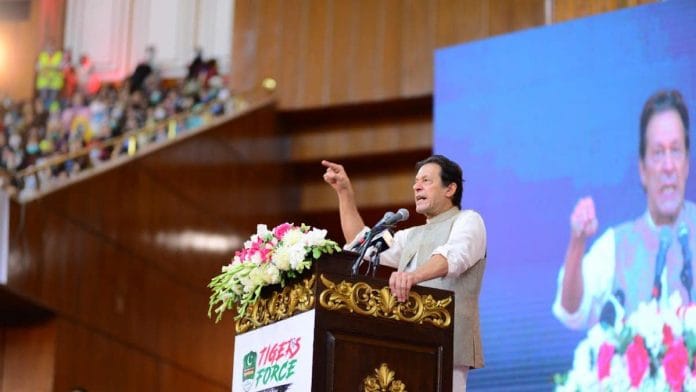The Taliban victory in Afghanistan is a reminder that Pakistan is, to a significant degree, defined by its relationship with outside influences. And perhaps more important even than those parts of its identity shaped by its South Asian neighbours, is Pakistan’s confused and complicated relationship with the West. That goes right back to 1947 because, while Pakistanis celebrate Jinnah‘s successful campaign for the establishment of the country, there is no escaping the fact that the country came into being as a result of a decision by a British aristocrat.
The conflicting impulses that drive Pakistan’s relationship with the Western world predate 1947. After all, the forbears of the people now living in Pakistan had to adjust to the arrival of the British colonisers, the first of whom arrived in 1612. He was a trader hoping to make some money and even though it didn’t work out for him, the East India Company eventually followed in his wake and profits started moving from Sindh to London.
The 1843 British conquest of Sindh brought with it new problems. The history of the Bhutto family illustrates the difficulties presented by Britain’s imperial project to many of the subcontinent’s leading families. Some of the 19th-century Bhuttos, such as Doda Khan Bhutto, managed to get benefits from British officials by trading their control over the local populace in return for cash and status conferred by the colonial authorities. These arrangements were so important to the British that they started bailing out Sindhi landlords who were failing to keep their estates in good financial shape. When he applied for a British subsidy, Doda Khan Bhutto manipulated the system, exaggerating his debts thereby getting more money out of the colonial authorities than he might otherwise have done.
His conduct upset British officials whose complaints about what they considered his “persistently dishonest behaviour” are preserved in British records. Reading the British complaints, it is striking how they pre-echo American complaints about Pakistan in the post 9/11 era. In both cases, 150 years apart, Western governments are accusing Pakistanis and their forebears of exploiting their relationship with the West to make money.
Other Bhuttos clashed with their colonial masters more openly. In the late 1800s for example, Ghulam Murtaza Bhutto had to flee to Kabul to escape British justice and the official he was in conflict with, Col. Hercules Mayhew, spent his dotage in his London club penning furious letters denouncing the Bhutto family as thieves and murderers. In other words, both sides alternated between calculated interdependence and disdain.
Much of this was echoed in the 20th century during which Pakistan has gone from being portrayed as America’s most allied ally to, since the Afghan Taliban victory, an untrustworthy one. And as for the 20th-century Bhuttos, they too reflected these contradictions. While Shahnawaz Bhutto stood solidly behind, as he put it, “the British connection” and was rewarded with a knighthood, his son, the American- and British-educated Zulfikar, won power in part on basis of anti-Western rhetoric. But even then, ZAB was delighted to host Queen Elizabeth’s husband Prince Philip to a 1959 duck shoot in which the visiting royal bagged no fewer than 143 ducks in five hours.
In a telling metaphor replete with a sense of shame, many Pakistanis have likened Washington’s relationship with Islamabad to that of a virile man and his vulnerable mistress. At times the latter is being passionately wooed and courted, and at others — such as the phase we are in now — is cruelly spurned and ignored.
Prime Minister Imran Khan is a living embodiment of all these contradictions. Virtually every speech he makes now contains some bitter criticism of the West and its various hypocrisies. And it is likely he will forever be identified with his declaration that the Afghan Taliban — whose personal values are so utterly removed from his own — should be seen as liberation fighters who have broken the shackles of slavery. And yet Imran Khan has been the most famous man in Pakistan for most of his life because of his very Western pursuits of an Oxford education, a playboy lifestyle and his brilliant performances as a great player in the most English of games, cricket.
ZAB used to say he had a Western mind and an Eastern soul. Imran Khan is an even more striking example of that phenomenon — a man who rose to fame in the West by embracing many Western values, he now finds solace and guidance from a Sufi spiritualist. And to that extent, he is an individual who captures many of the conflicting impulses of the nation he leads.
The writer is author of The Bhutto Dynasty: The Struggle for Power in Pakistan. Views are personal.
The article first appeared on Dawn website. It has been republished with permission.






